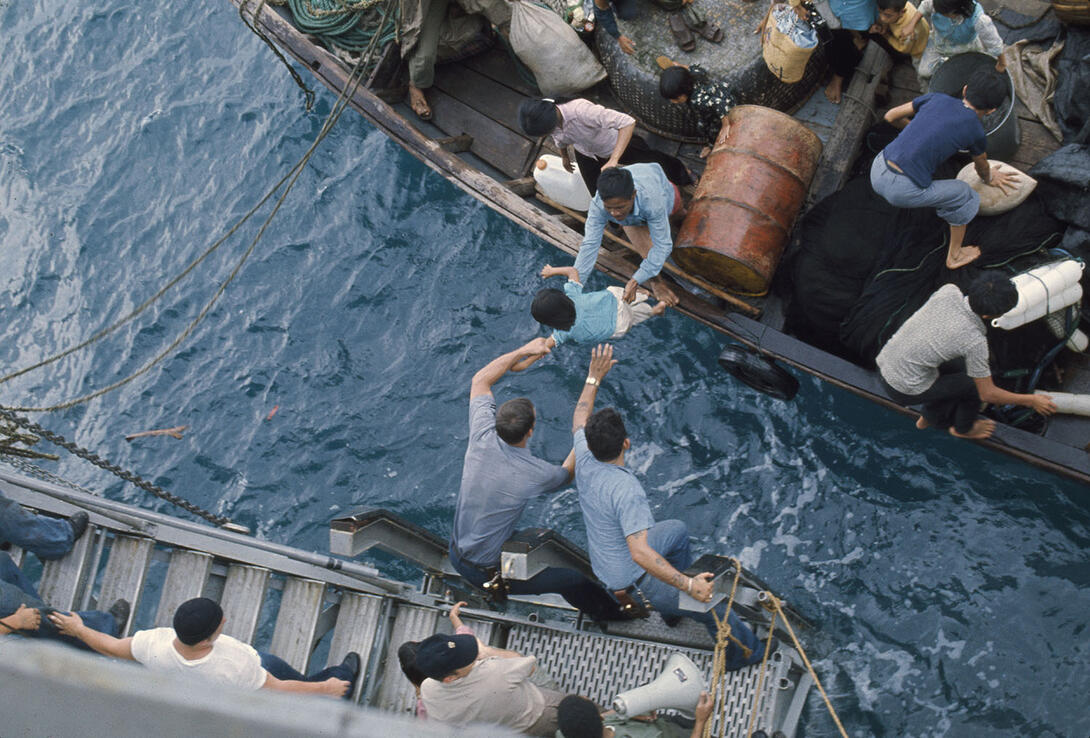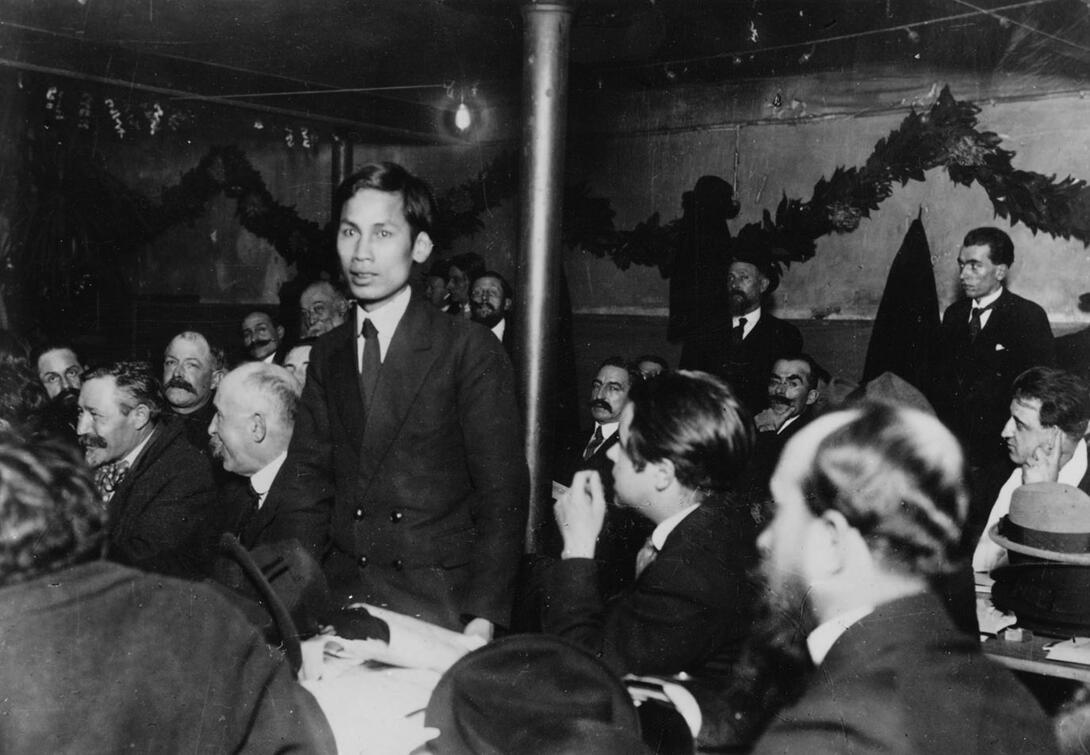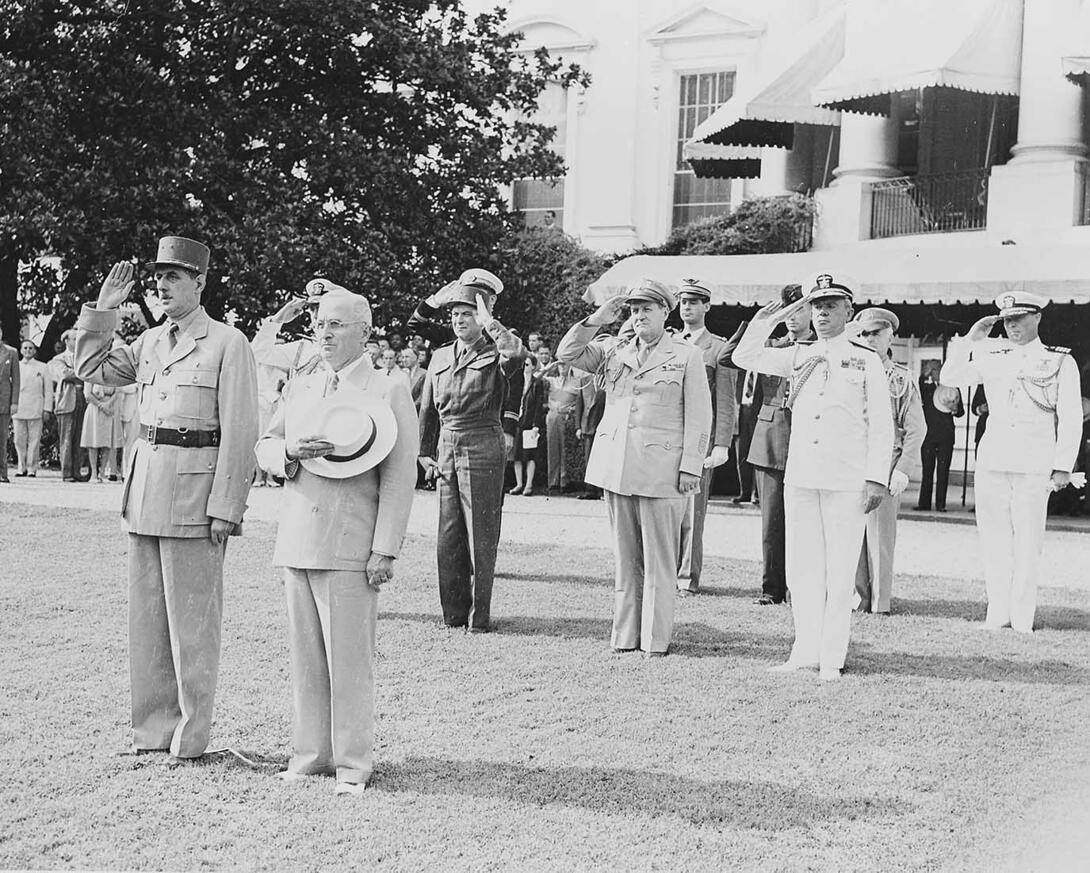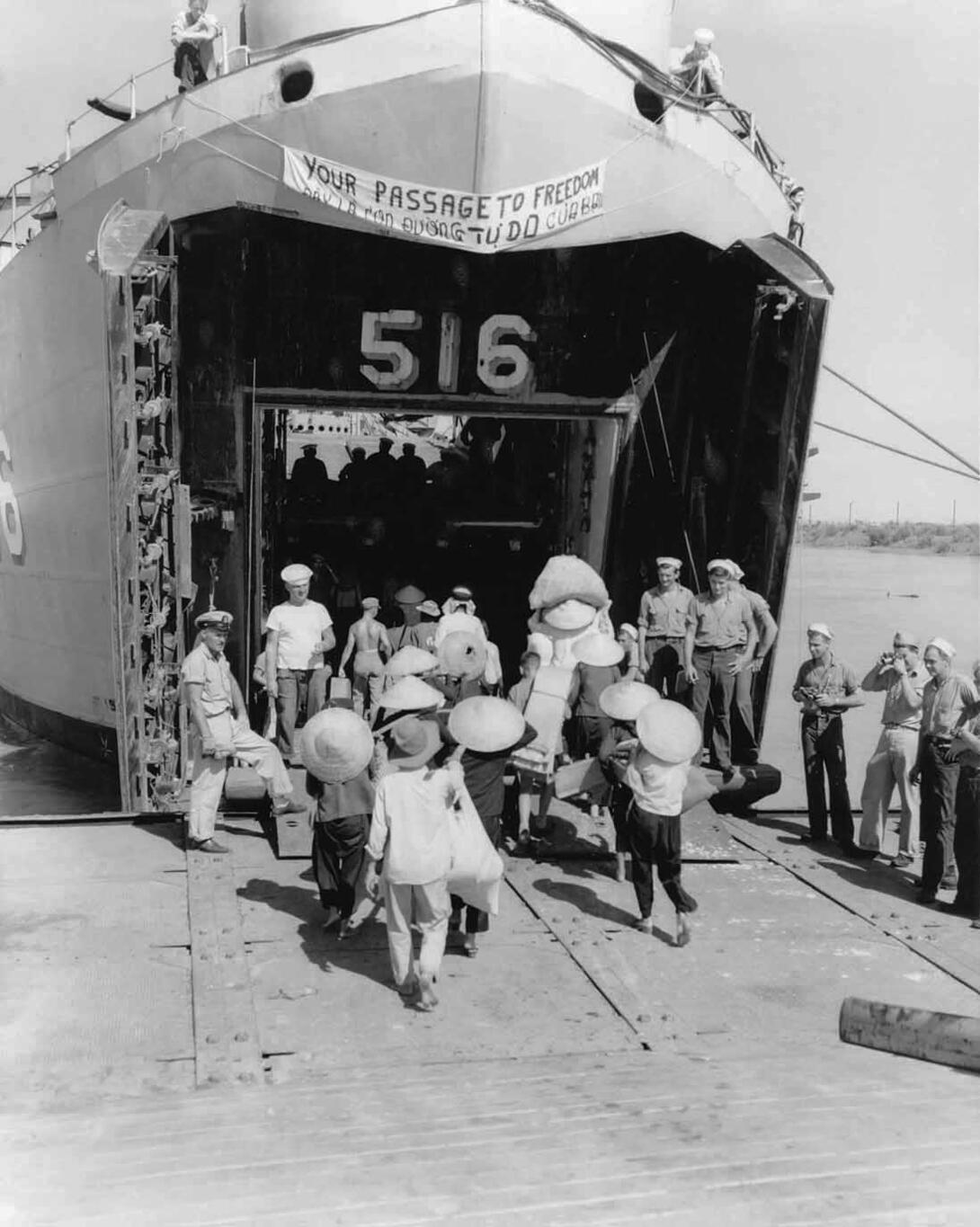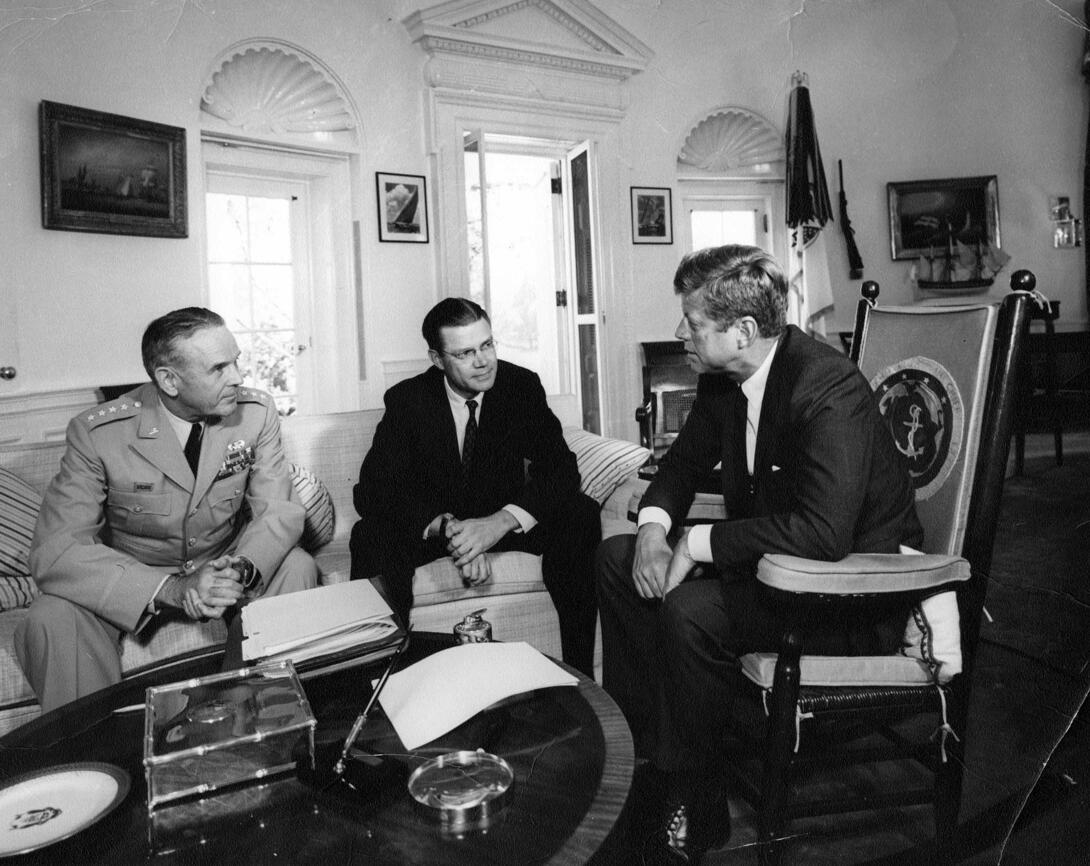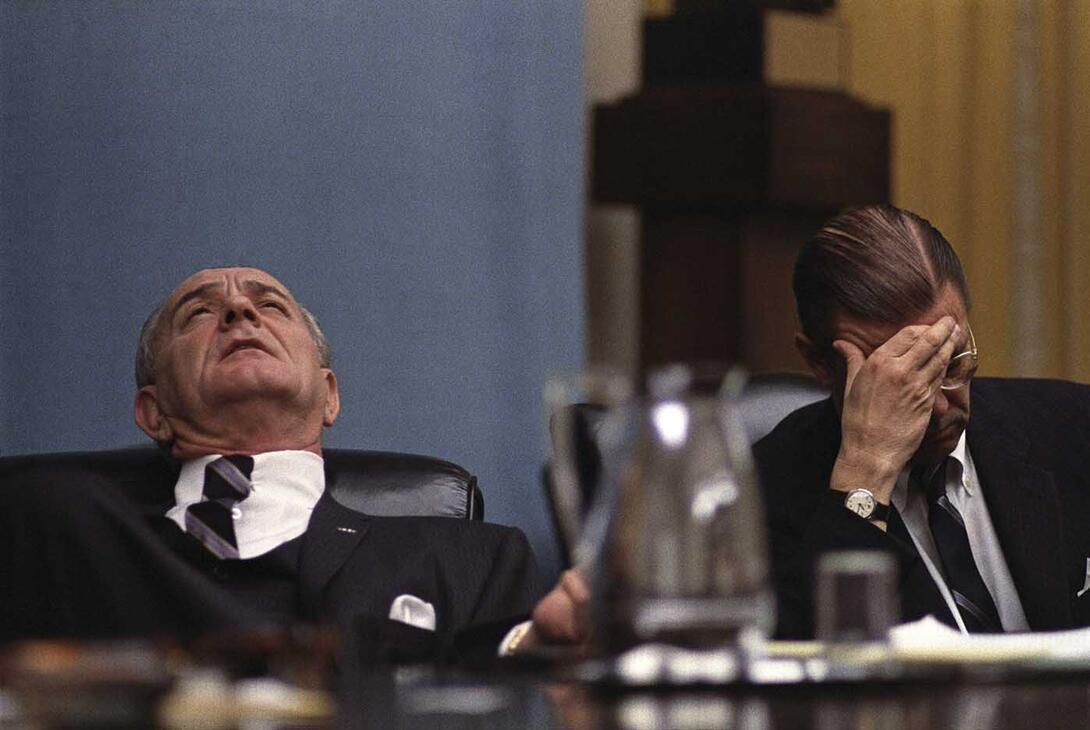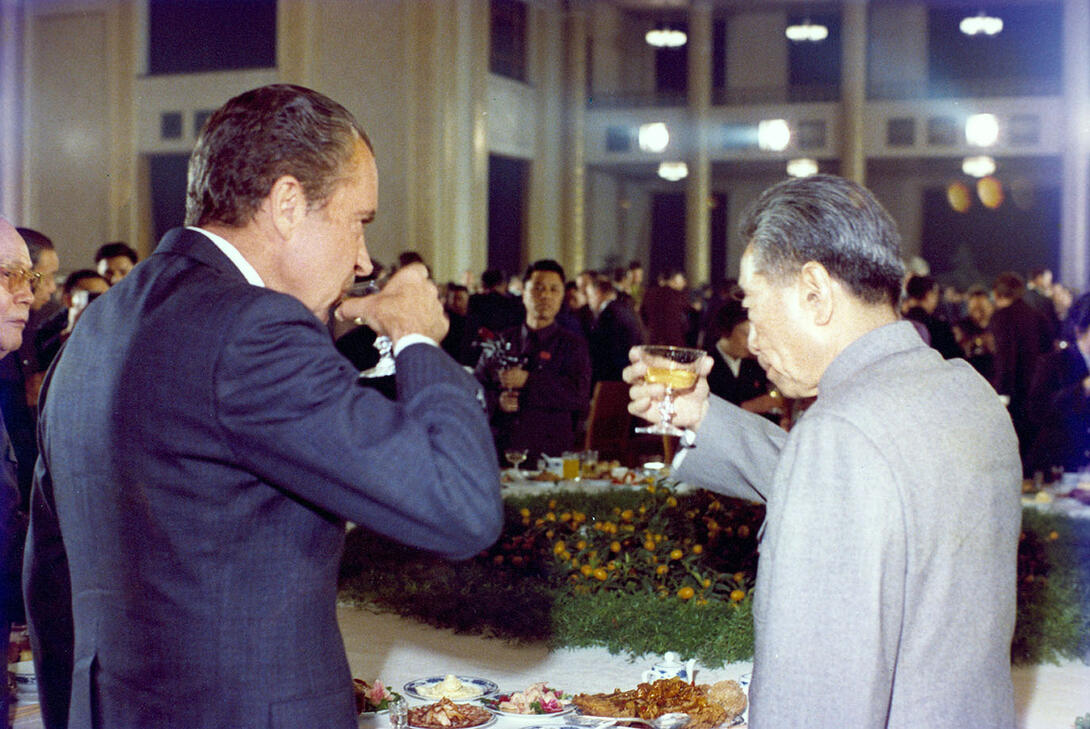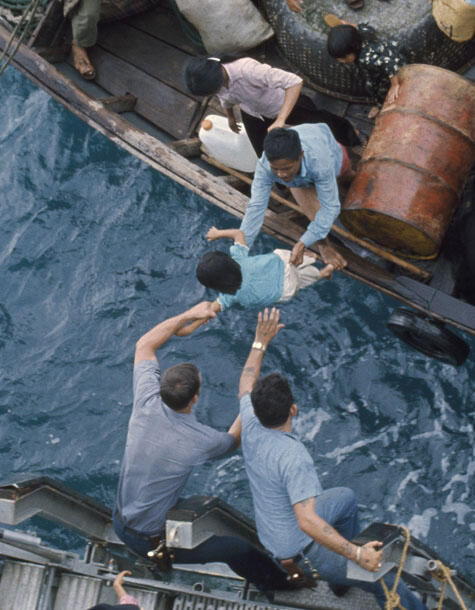-
During his early years abroad, Ho Chi Minh became a committed communist. Having witnessed the barbaric treatment and exploitation of his people by the French colonizers, he was attracted to communism’s emphasis on community, simplicity, and equality....Read more
During his early years abroad, Ho Chi Minh became a committed communist. Having witnessed the barbaric treatment and exploitation of his people by the French colonizers, he was attracted to communism’s emphasis on community, simplicity, and equality. Most importantly, communism aligned with his patriotism and quest for national liberation. Nguyen Ai Quoc (Ho Chi Minh) speaking at the foundational congress of the French Communist Party, Tours, December 1920, Photographer unknown.
Read less -
President Truman and French President Charles de Gaulle during welcoming ceremonies on the White House lawn, August 22, 1945. National Archives, Harry S. Truman Presidential Library and Museum
-
President John F. Kennedy (in rocking chair) meets with Secretary of Defense Robert S. McNamara and Chairman of the Joint Chiefs of Staff General Maxwell D. Taylor (far left). Secretary McNamara and General Taylor reported to President Kennedy on their recent survey trip to South Vietnam....Read more
President John F. Kennedy (in rocking chair) meets with Secretary of Defense Robert S. McNamara and Chairman of the Joint Chiefs of Staff General Maxwell D. Taylor (far left). Secretary McNamara and General Taylor reported to President Kennedy on their recent survey trip to South Vietnam. Kennedy, McNamara, and Taylor in the Oval Office at the White House, October 2, 1963. National Archives, John F. Kennedy Presidential Library and Museum
Read less -
In the wake of the Tet Offensive, the Johnson administration began to question its strategy in Vietnam. President Johnson and Secretary of Defense Robert McNamara at a cabinet meeting, February 7, 1968. National Archives, Lyndon B....Read more
In the wake of the Tet Offensive, the Johnson administration began to question its strategy in Vietnam. President Johnson and Secretary of Defense Robert McNamara at a cabinet meeting, February 7, 1968. National Archives, Lyndon B. Johnson Presidential Library and Museum
Read less -
President Nixon created the President’s Commission on Campus Unrest to investigate protest at schools across the country....Read more
President Nixon created the President’s Commission on Campus Unrest to investigate protest at schools across the country. It concluded that “the indiscriminate firing of rifles into a crowd of students and the deaths that followed were unnecessary, unwarranted and inexcusable.” A federal grand jury indicted eight guardsmen, but found they were not subject to criminal prosecution because they acted in self defense. Kent State Investigation photo, May 4, 1970. National Archives, Records of Temporary Commissions, Committees, and Boards
Read less -
Nixon and Kissinger pursued improved diplomatic relations with both China and the Soviet Union as a kind of “insurance policy” should the war in Vietnam end badly. They downplayed the strategic significance of Vietnam in light of the thaw in Cold War hostilities....Read more
Nixon and Kissinger pursued improved diplomatic relations with both China and the Soviet Union as a kind of “insurance policy” should the war in Vietnam end badly. They downplayed the strategic significance of Vietnam in light of the thaw in Cold War hostilities. Nixon made historic visits to both countries in 1972. The governments of both North and South Vietnam feared this development indicated a weakening of support from its allies. President Nixon and Premier Zhou Enlai toast at a state dinner in Beijing, February 25, 1972. National Archives, Richard Nixon Presidential Library & Museum
Read less








